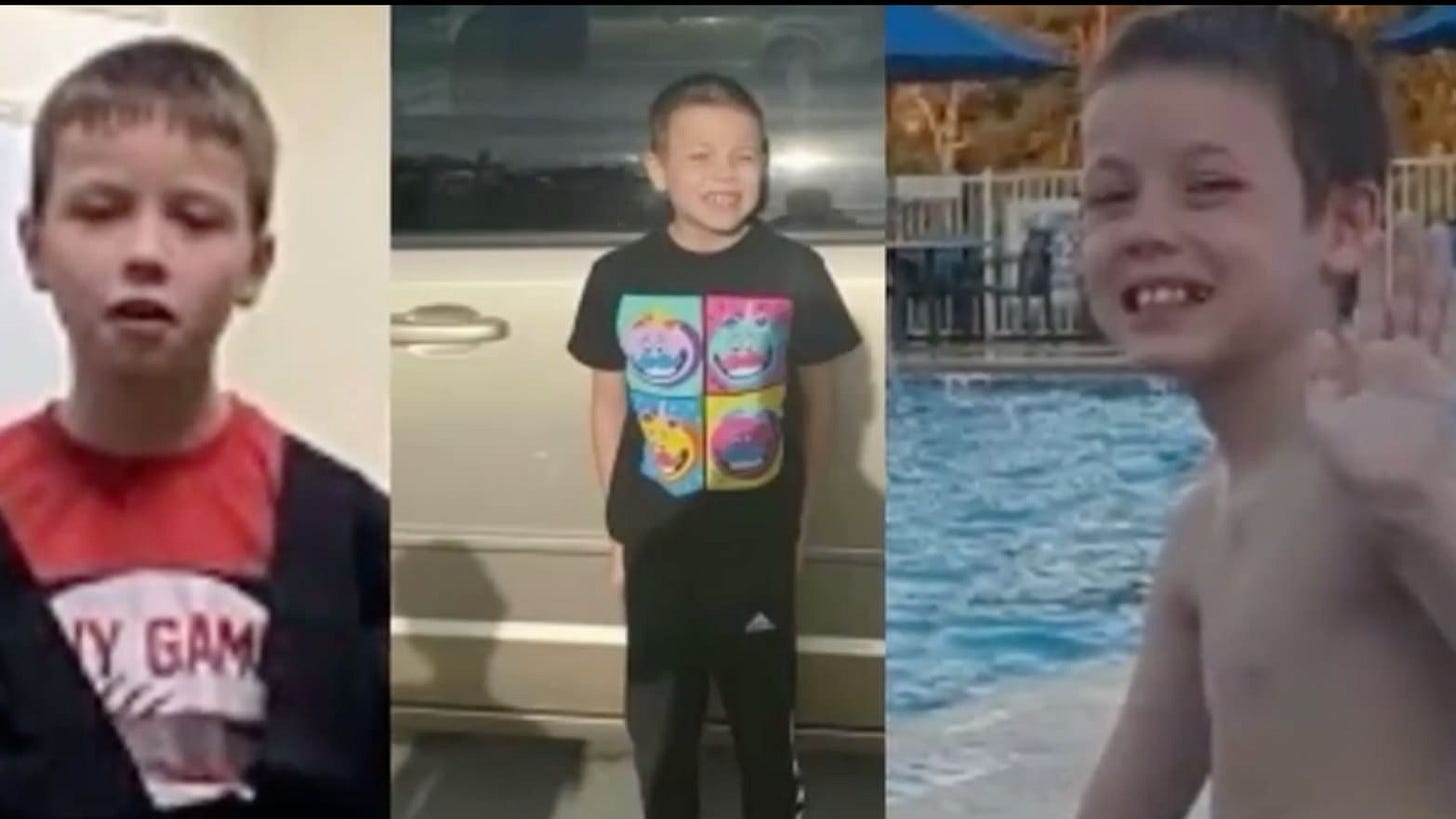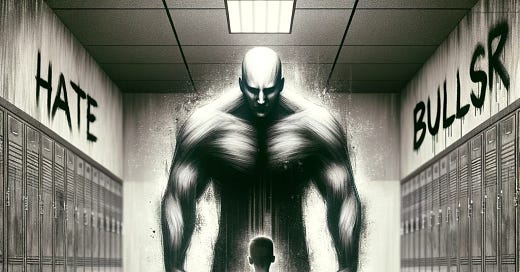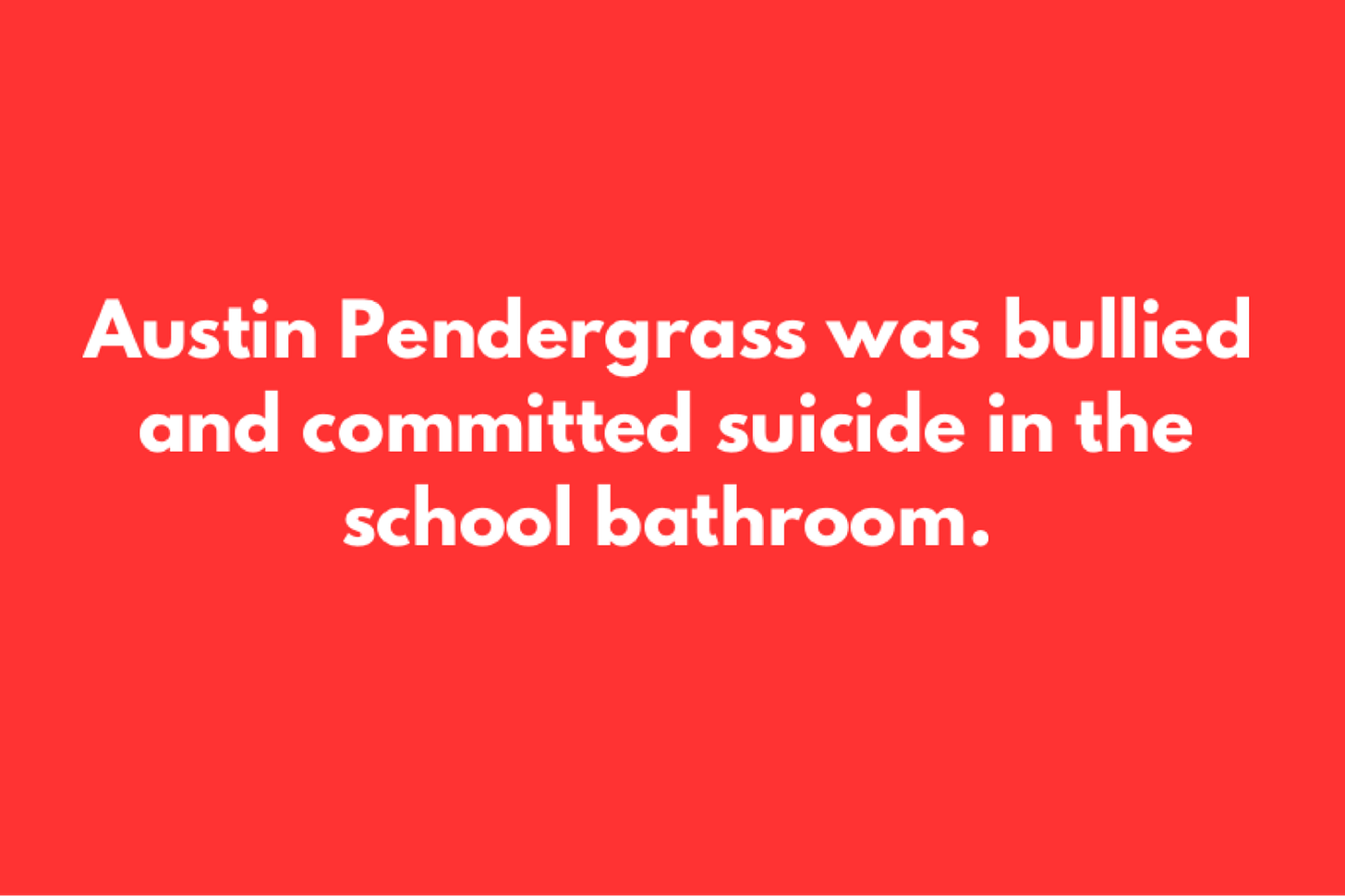Deadly Déjà Vu: Austin Pendergrass's Tragic End Tied to Another Bullying Case
The Forgotten On-Campus Death of Middle Schooler Austin Pendergrass in 2022.
Note to Readers: Although my recent work hasn't focused on in-depth analysis of school data, similar to my previous coverage on Dillard Drive and Southeast Raleigh, I intend to revisit this area in the near future. Currently, I'm awaiting the release of last year's report card data by the North Carolina Department of Public Instruction (NCPDI). In the meantime, my upcoming articles will concentrate on exploring various policies, news, and publicly available information related to the school system.
Recapping the Tragic Outcomes of Two Wake County Student Incidents
In my last article, I covered the tragic death of Shamar Leverette, whose parents unenrolled him (due to safety concerns) from the Wake County School System before he was fatally shot off-campus. I also covered the death of Devlin Ferrell who was fatally stabbed by Tyquan General Jr. at Southeast Raleigh. In that case, the mother of Tyquan informed the school that morning that something was going to happen. She also said that her son was bullied and he felt unsafe.
Based on the analysis of the incident video, it seems that initially, Delvin confronted Tyquan outside the gym. Following this, Delvin entered the gym where he was then overwhelmed. During the altercation, it was observed that he stabbed a student and then stabbed Delvin before ultimately breaking away and fleeing the scene.
While public opinion may perceive Delvin's death as a singular event within Wake County Schools, this is far from the truth. There have been other tragic losses, including a distressing case last year in a middle school where a parent attributed bullying to their child's death.
The Forgotten On-Campus Death: Austin Pendergrass

The tragic case of Austin Pendergrass at Wendell Middle School in Wake County, North Carolina, on September 8th, 2022, serves as a stark example of the school system's shortcomings. Austin, an eighth-grader, tragically ended his life in the school bathroom. This incident vividly illustrates the school system's flawed handling of discipline and bullying issues.
Jessica Pendergrass, Austin's mother, openly criticized the school's inadequate response to her son's bullying, suggesting that their passive approach and lack of meaningful support played a role in the tragedy. She recalled instances where the school's only solution was to send Austin home, avoiding addressing the real problems.
Moreover, the school's proposal to transfer Austin to an unrelated virtual program in Wake County seemed more like an evasion than a genuine attempt to help. This case not only casts a light on the harrowing impact of bullying but also questions the school system's dedication to fostering a secure and supportive educational environment.
Allegations of Unreported Attempted Suicides
In my career, I've learned through private discussions about several unreported suicide attempts in our schools. For confidentiality, I haven't disclosed the specific schools involved. Notably, around the 2018-19 school year, a distressing incident occurred where a student attempted suicide with a belt during a PE class. Shockingly, after the teacher intervened, the student was merely sent to their next class without any mental health support.
Furthermore, a parent shared a harrowing story from about five or six years ago, where another student attempted suicide under similar circumstances. These accounts indicate that such incidents might be more common than reported, pointing to a critical issue in addressing student mental health in our schools.
The Euphemism Game in Education
The prevailing sentiment is that Social Emotional Learning (SEL) may be nothing more than an extension of the self-esteem movement, which has been critiqued for its effectiveness.
Referencing George Carlin's comedic sketch offers a satirical perspective the self-esteem movement, suggesting that was misguided as well. This view implies that the education system may be repeating past errors by overly focusing on mental health without adequately addressing the practicality and effectiveness of these initiatives.
The Behavioral Inadequacies of Social Emotional Learning
Research consistently highlights the significance of positive parental involvement during the ages of 0 to 4 years:
The negative impact of a father's criminal behavior on his involvement with his children diminishes in the presence of strong, supportive relationships with his male relatives.
Women who started having children during their teenage years were more likely to receive a criminal conviction in their young adult years compared to those who began childbearing later.
Increased interaction with their biological father, particularly in African American families, is associated with a lower likelihood of a child committing crimes or encountering the juvenile justice system.
Parenting behavior and self-regulation interplay predicts children's problematic behavior and emotional control, while peer relationships and self-regulation skills jointly impact academic achievement.
Aggressive and disruptive behaviors in young children often worsen over time. Treating these as neurodevelopmental issues, focusing on brain and psychological processes, could effectively address these behaviors.
Furthermore, restorative practices are ineffective in changing intense, dangerous, or harmful behaviors, in students lacking necessary skills for post-restorative behavior change, or when used simplistically for complex behaviors influenced by multiple factors like home or school environments.
The central theme suggests that antisocial behaviors, infringing on others' rights, often emerge before children attend Kindergarten. Researchers stress the need for addressing these behaviors through brain and psychological process interventions during early developmental stages, highlighting that schools cannot be a one-stop fix for societies ills.
The Academic Shortcomings of Social Emotional Learning
A recent study focused on social and emotional characteristics, which have been seen as potential tools to bridge the achievement gap between disadvantaged and more affluent students. However, the study's findings indicate that these characteristics contribute no more than 9% to the overall attainment gap.
Significantly, it's noteworthy that the researchers even raise the possibility that this 9% figure could be an overestimate, considering the potential impact of low academic achievement on children's self-belief. The study involved the analysis of data from nearly a quarter of a million 15-year-olds across 74 countries.
If this study holds true in future work, the amount of money wasted in social emotional learning will be astronomical as the industry is projected to grow from 3.6 billion in 2023 to 10.3 billion dollars by 2028.
Accept This Rapid and Stark Reality
Goodbye: Locus of Control
If the information about these behaviors is accurate, then Wake County's equity training, with its emphasis on 'locus of control,' is fundamentally misguided. This concept is being misapplied to shift the focus away from external factors that significantly contribute to disparities in student achievement and behavior. The training's approach seems to inadequately address the complex realities impacting student outcomes, suggesting a need for a more comprehensive and nuanced understanding of the issues at hand.
Hello: Confrontation of the Truth
It's crucial to confront a hard truth head-on: the initiatives around restorative justice and social emotional learning are being critically challenged by the devastating incidents occurring on campus. The loss of two students in two years due to alleged unaddressed bullying is a glaring alarm that cannot be ignored. Moreover, the heart-wrenching situation of a student, pulled out of school by concerned parents for safety reasons, only to lose his life on a day he was supposed to be in school, adds to the gravity of the situation.
There is an urgent need to scrutinize the implementation of social justice policies in public education, especially those enacted quickly during the pandemic and its aftermath. This hasty integration appears to have compounded the challenges already faced by schools, deteriorating the learning environment further.
Go Away: COVID-19 Pandemic Excuses
It's imperative to strip away the protective veil that the pandemic has cast over these outcomes. The negative impacts of these hastily implemented social justice reforms must be acknowledged and addressed with the seriousness they demand. Our educational system's future effectiveness and the safety and well-being of our students depend on this critical examination and action.
About the Author
Writing under the pseudonym Samuel Dewey, he is an experienced public school teacher who shifted away from liberal ideology post-pandemic. His writing focuses on public education policy and contemporary issues, offering a perspective that challenges the mainstream media narrative.






